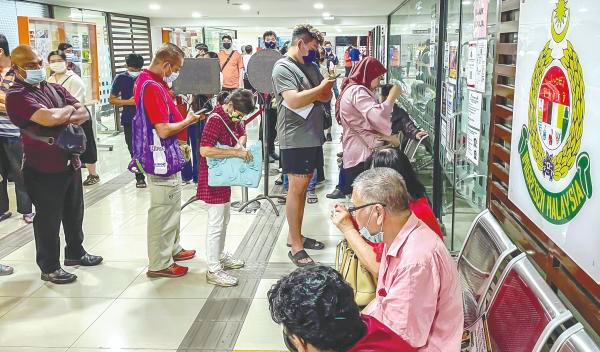PETALING JAYA: Experts have said the government move to extend passport validity to 10 years would only benefit foreign economies and not local ones because of increased tourism-related expenditure abroad.
Universiti Teknologi Mara tourism economics professor Dr Mohd Hafiz Hanafiah said the policy change would not bring any inbound benefits as Malaysians would likely travel abroad more frequently.
“The policy change should be applauded as it would reduce the frequency and associated costs of passport renewals, which is good news for avid travellers.
“However, it would not have an impact on our tourism industry as Malaysians may be more inclined to travel abroad, leading to higher spending in other countries rather than locally.”
He said although the introduction of a 10-year passport aligns with international travel document standards, it would not enhance Malaysia’s competitiveness as a travel-friendly nation as its main benefit lies in operational efficiency.
“Fewer passport renewals mean a reduced administrative burden on government agencies and improved services, such as border control and immigration processes. It does not directly translate into making Malaysia more attractive or competitive as a travel destination.”
Hafiz said the policy aligns Malaysia with its regional neighbours, such as Singapore, Indonesia and the Philippines, by making travel documents more convenient for Malaysians.
However, he said there are cases in the US and several EU countries in which personal information and photographs become outdated within a decade, potentially leading to security risks.
“The government may need to update its passport issuance infrastructure to handle the increased validity period while embassies and consulates abroad might need to adjust their services to accommodate such passports.
“Extensive public campaigns to ensure citizens understand the new rules and procedures, including the pros and cons of the extended validity, is also important.”
Economist and Global Labour Organisation Southeast Asia lead Prof Niaz Asadullah said any reform that removes barriers to free movement could stimulate long-term growth for the country.
He said although the policy change could lead to more frequent international travel for Malaysians, this would benefit the local travel and tourism industry.
“Although an extended passport is not a primary driver of overseas travel, its overall impact depends on broader factors, such as financial conditions and currency strength.
“If the ringgit weakens, the benefits of the 10-year passport may be limited to the more affluent segments of society as a weaker currency would make international travel more expensive.”
Niaz said the convenience of a 10-year passport validity may encourage more spontaneous and frequent travel but the increased ease of travel would lead to higher demand for travel-related services and packages, benefitting various sectors within the tourism industry and increasing revenue for airlines, travel agencies and tour operators.
“While increased outbound tourism could benefit the travel industry, it also has the potential to divert spending from the local economy. Such tourism could reduce domestic spending and impact local tourism and businesses. Higher spending abroad would lead to economic leakage.
“This could affect domestic growth and investment as funds that might have been spent on local goods and services are instead directed to foreign economies.”









